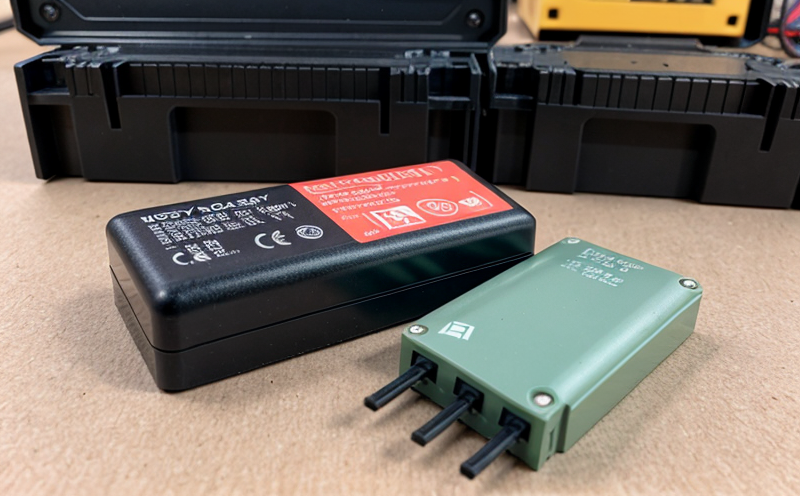GB/T 34013 Performance Testing of Lithium-Ion Battery Packs Under Low Temperature
The GB/T 34013 standard provides a comprehensive framework for evaluating the performance of lithium-ion battery packs under low temperature conditions. This testing is critical in ensuring that batteries meet the required safety, durability, and reliability standards across various sectors such as automotive, electronics, and renewable energy storage. The test aims to simulate real-world conditions where these batteries are expected to operate efficiently.
The standard specifies a series of tests designed to assess the battery pack's performance under low temperatures ranging from -40°C to 65°C. This range is particularly relevant for applications in cold climates, such as electric vehicles operating in Arctic regions or stationary energy storage systems deployed in remote areas with extreme weather conditions.
The testing protocol involves several critical parameters that must be carefully controlled and monitored during the process:
- Temperature control: The test chamber is maintained at a precise temperature within the specified range to simulate low-temperature environments accurately.
- Cycling: The battery pack undergoes multiple charge-discharge cycles while exposed to the controlled temperature. This simulates real-world usage conditions and evaluates the impact of cold temperatures on the battery's performance.
- State-of-Charge (SoC) monitoring: Throughout the test, the state of charge is continuously monitored to ensure that the battery operates within safe limits even at low temperatures.
- Performance metrics: Key performance indicators such as capacity retention, internal resistance, and voltage variation are recorded. These metrics provide insights into how well the battery retains its energy storage capacity under cold conditions.
The test setup is designed to simulate real-world scenarios where the battery must perform reliably in cold climates. This includes charging the battery pack while it's exposed to low temperatures, followed by discharging it and then recharging again. The process is repeated multiple times to assess long-term performance and durability.
Accurate and detailed data recording is essential for this type of testing. Our laboratory uses advanced test equipment that can precisely measure voltage, current, temperature, and other relevant parameters during the entire process. This ensures that we capture all critical information needed for a thorough evaluation of battery performance under low temperatures.
The results from these tests are invaluable for quality managers and compliance officers looking to ensure their products meet international standards. The data provides valuable insights into how well the battery performs in cold conditions, helping them make informed decisions about product design and manufacturing processes. For R&D engineers, this testing is crucial as they can use the findings to improve future iterations of batteries.
By adhering to the GB/T 34013 standard, we ensure that our clients receive accurate and reliable performance data for their battery packs under low temperature conditions. This not only helps them meet regulatory requirements but also enhances product safety and reliability in harsh environments.
Industry Applications
The GB/T 34013 standard is widely used across various industries where lithium-ion batteries play a crucial role. One of the primary sectors benefiting from this testing is the automotive industry, particularly for electric vehicles (EVs). EV manufacturers rely on these tests to ensure their vehicles can perform optimally in cold climates, extending driving range and enhancing overall performance.
In addition to the automotive sector, the renewable energy storage market also heavily relies on GB/T 34013-compliant testing. Energy storage systems deployed in remote locations or regions with extreme weather conditions must be able to operate reliably under low temperatures. This ensures that these systems can store and deliver power efficiently without degradation.
The electronics industry is another significant user of this standard, especially for portable electronic devices like laptops, smartphones, and tablets. These devices often need to function in diverse environments, including cold regions where the battery's performance could be adversely affected by low temperatures. By subjecting these batteries to GB/T 34013-compliant testing, manufacturers can ensure their products meet stringent quality standards.
The aerospace industry also uses this standard for certain applications. Aircraft and drones operating in high-altitude or cold regions require reliable power sources that can perform consistently under challenging conditions. Testing battery packs according to the GB/T 34013 ensures that these devices are capable of delivering consistent performance, enhancing safety and operational efficiency.
Overall, the application of this standard across various industries highlights its importance in ensuring the reliability and performance of lithium-ion batteries in diverse environmental conditions. By adhering to the strict protocols outlined in GB/T 34013, manufacturers can ensure their products meet international standards, enhancing safety and operational efficiency.
Eurolab Advantages
At Eurolab, we pride ourselves on offering a robust and reliable service for GB/T 34013 compliance testing of lithium-ion battery packs under low temperature conditions. Our advantages include:
- State-of-the-Art Facilities: We have dedicated facilities equipped with advanced test chambers capable of maintaining precise temperature control within the specified range for extended periods.
- Expertise and Experience: Our team of experienced professionals brings deep industry knowledge, ensuring accurate and reliable testing results. Their expertise spans various sectors where lithium-ion batteries are critical components.
- Comprehensive Reporting: We provide detailed reports that not only capture the essential performance metrics but also offer insights into potential areas for improvement. This helps clients make informed decisions about their product development processes.
- Regulatory Compliance: Eurolab ensures all tests are conducted in strict adherence to GB/T 34013 standards, providing clients with confidence that they meet international regulatory requirements.
- Customer Support: Our dedicated customer support team is always available to assist with any queries or concerns. They offer guidance on test procedures, specimen preparation, and interpreting results.
With these advantages, Eurolab stands out as a preferred partner for companies seeking reliable GB/T 34013 compliance testing services. Our commitment to quality and customer satisfaction ensures that our clients receive the highest level of service in the industry.





